Table of Contents
The UGC NET Women Studies syllabus comprises two papers, addressing teaching and research aptitude in Paper 1, while Paper 2 focuses specifically on Women Studies. Paper 1 covers fundamental aspects such as teaching methods, research ethics, communication, reasoning, data interpretation, and information technology, ensuring candidates possess the necessary skills for effective teaching and research in the field.
UGC NET Women Studies Syllabus 2024
The UGC NET Women Studies syllabus delves into various aspects of gender dynamics, encompassing feminist theories, women’s education, health, entrepreneurship, laws, media portrayal, empowerment, and research methodology. Candidates will explore issues such as gender inequality, women’s rights, empowerment strategies, and the impact of societal structures on women’s lives, preparing them for academic and research roles in gender studies.
UGC NET Women Studies Exam Pattern
UGC NET Syllabus for Women Studies has been released and is available in the below article. The UGC NET Women Studies exam is conducted by the National Testing Agency (NTA) twice a year. UGC NET is a computer-based test (CBT) that consists of two papers: Paper 1 and Paper 2.
Paper 1: Teaching and Research Aptitude
- Total Marks: 100
- Total Questions: 50
- Duration: 1 hour (60 minutes)
- Nature of Questions: Objective-type, multiple-choice questions
- Topics Covered: Teaching aptitude, research aptitude, reading comprehension, communication, reasoning, logical reasoning, data interpretation, information and communication technology (ICT), and people and environment.
Paper 2: Women Studies
- Total Marks: 200
- Total Questions: 100
- Duration: 2 hours (120 minutes)
- Nature of Questions: Objective-type, multiple-choice questions
- Topics Covered: Feminist theories, Women’s education, Health issues affecting women, Gender and entrepreneurship
Laws and governance related to women, Gender portrayal in media, Empowerment and development of women, Gender-based violence and legal protection, International conventions on women’s rights and Feminist research methodology.
UGC NET Women Studies Paper II Important Topics
The UGC NET Women Studies Paper II Important Topics are comprehensive and cover various aspects of Women Studies. Here’s a breakdown of the key areas you’ll encounter:
- Key concepts in Gender studies
- New Feminist Debates- Post Colonial /Post Modern, LGBT, Masculinity Studies
- Education for the Marginalized Women
- New Economic Policy and Its Impact on Women’s Employment
- Gender and Emerging Technology
- Life Cycle Approach to Women’s Health
- Women Development Approaches in Indian Five-Year Plans
- Gender Equality, Gender Discrimination, Women’s Rights as Human Right
- Coverage of Women’s issues
- Understanding Feminist Research
UGC NET Women Studies Syllabus for Paper II
The UGC NET Women Studies Paper II syllabus covers a wide range of topics related to the complex dynamics of gender, addressing the diverse experiences, challenges, and empowerment of women across different societal domains. Here’s a breakdown of the key areas:
Unit – I: Introduction to Women’s Studies
- Key concepts in Gender studies.
- Need, Scope and Challenges of Women’s Studies – Women’s Studies as an academic discipline. Women’s Studies to Gender Studies,
- Need for Gender Sensitization.
- Women’s Movements – global and local: Pre-independence, Post-independence and Contemporary Debates.
- National Committees and Commissions for Women
Unit – II: Feminist thinkers and theories
- Liberal Feminism, Marxist Feminism, Radical Feminism, Socialist Feminism, Indian Feminism, Black Feminism, Eco-Feminism.
- New Feminist Debates- Post Colonial /Post Modern, LGBT, Masculinity Studies.
- Contemporary Contestations – Intersex and Transgender Movements.
- Feminist thinkers in 18th, 19th, 20th and 21st Century
Unit – III: Gender and Education
- Women’s Education – Gender diversities and disparities in enrolment, Curriculum content, Dropouts, profession and Gender.
- Gendered Education- Family, Culture, Gender roles, Gender Identities.
- Education for the Marginalized Women.
- Recent Trends in Women’s Education – Committees and Commissions on Education.
- Vocational education and skill development for women.
Unit – IV: Women, Work and Employment
- Theoretical Perspective: Fredrick Engels, Rosa Luxemburg, Sandra Whiteworth, Boserup Esther.
- Concept of Work – Productive and non – productive work – Use value and market value.
- Gender Division of Labour – Mode of Production – Women in organized and unorganized sectors.
- New Economic Policy and its Impact on Women’s Employment – Globalization – Structural Adjustment Programs.
Unit – V: Gender and Entrepreneurship
- Concept and meaning, Importance of Entrepreneurship, Entrepreneurial traits, Factors contributing to Entrepreneurship, enabling environment, small Enterprises, women in agri-business.
- Gender and emerging Technology – Impact.
- Self-help Groups and Micro Credit.
- Gender mainstreaming, Gender budgeting, planning and Analysis
Unit – VI: Women and Health
- Life Cycle Approach to Women’s Health – Health status of women in India, factors influencing health and Nutritional status.
- Maternal and Child Health (MCH) to Reproductive and Child Health Approaches.
- Issues of declining Child Sex Ratio, Widowhood and old age.
- Occupational and mental health.
- Health, Hygiene and Sanitation.
- National Health and Population Policies and Programmes.
Unit – VII: Women Empowerment and Development
- Theories of Development, Alternative approaches – Women in Development (WID), Women and Development (WAD) and
- Gender and Development (GAD).
- Empowerment- Concept and indices: Gender Development Index (GDI), Gender Inequality Index (GII), Global Gender Gap Index (GGGI).
- Women Development Approaches in Indian Five–Year Plans.
- Women and leadership– Panchayati Raj and Role of NGOs and Women Development.
- Sustainable Development Goals, Policies and Programmes
Unit – VIII: Women Law and Governance
- Rights: Gender Equality, Gender Discrimination, Women’s Rights as Human Rights.
- Constitutional provisions for Women in India.
- Personal laws, Labour Laws, Family Courts, Enforcement machinery – Police and Judiciary.
- Crime against Women and Child: Child Abuse, Violence, Human Trafficking, Sexual Harassment at Workplace Act, 2013 – Legal protection
- International Conventions and Legislations Related to Women’s Rights.
Unit – IX: Gender and Media
- Discourse on Women and Media Studies- Mainstream Media, Feminist Media.
- Coverage of Women’s issues and issues of women in Mass Media and Media Organizations (Audio-Visual and Print media).
- Digital Media and legal protection.
- Alternative Media – Folk Art, Street Play and Theatre.
- Indecent Representation of Women (Prohibition) Act, 1986, Impact of media on women.
Unit – X: Feminist Research Methodology
- Understanding Feminist Research – Concepts, Debates and Limitations.
- Feminist Epistemology, Feminist Standpoint, Sexist and Non-Sexist Research Methodology, Ethnography, Queer Theories.
- Research Design and Methods – Survey, Exploratory, Diagnostic, Experimental, Action Research and Case Studies.
- Qualitative versus Quantitative Research.
Download UGC NET Women Studies Syllabus PDF
The direct link to download the UGC NET Women Studies Syllabus has been provided below. Click on the below link to download the UGC NET Women Studies Syllabus in Hindi and English.
Download the UGC NET Women Studies Syllabus in English
UGC NET Women Studies Paper II Marking scheme
The UGC NET Women Studies Paper II follows a specific marking scheme. UGC NET 2024 marking scheme implies that each correct answer earns the candidate 2 marks, and there is no penalty for wrong answers. Therefore, candidates are encouraged to attempt all questions without fear of losing marks for incorrect responses.
- Total Marks: 200
- Total Questions: 100
- Each question carries: 2 marks
- Negative marking: There is no negative marking for incorrect answers.
UGC NET Minimum Women Studies Paper-II Qualifying marks
The minimum qualifying marks for UGC NET Women Studies Paper II (and Paper I) depend on your category. The minimum qualifying marks for UGC NET Women Studies Paper-II are determined based on several factors, including the difficulty level of the examination, the number of candidates appearing for the exam, and the overall performance of candidates.
- General Category (Unreserved): 40% (which translates to 40 marks out of 100 for Paper II).
- OBC Non-creamy Layer, PWD/SC/ST and Transgenders: 35% (which translates to 35 marks out of 100 for Paper II).

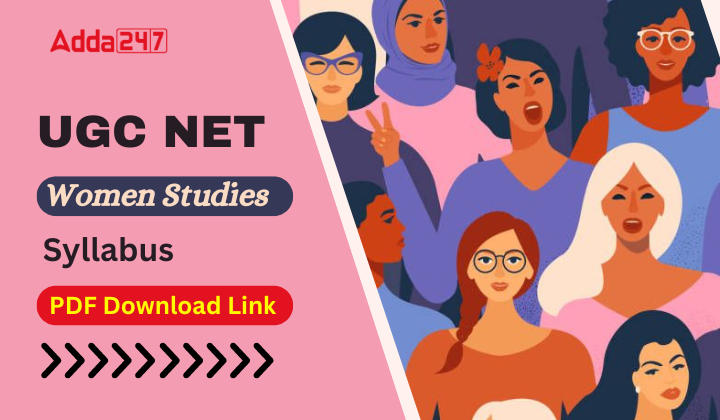
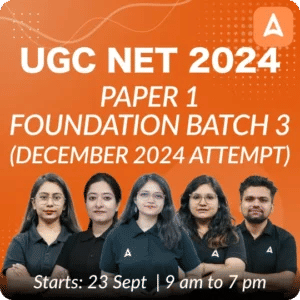

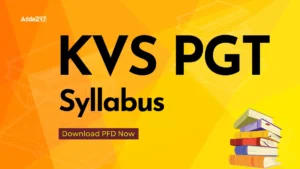 KVS PGT Syllabus 2025, Download PGT Syll...
KVS PGT Syllabus 2025, Download PGT Syll...
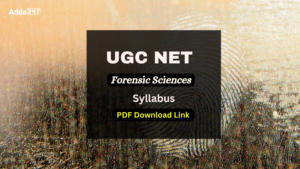 UGC NET Forensic Science Syllabus 2025 a...
UGC NET Forensic Science Syllabus 2025 a...
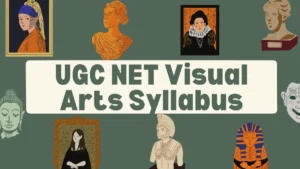 UGC NET Visual Arts Syllabus 2025 PDF Do...
UGC NET Visual Arts Syllabus 2025 PDF Do...














